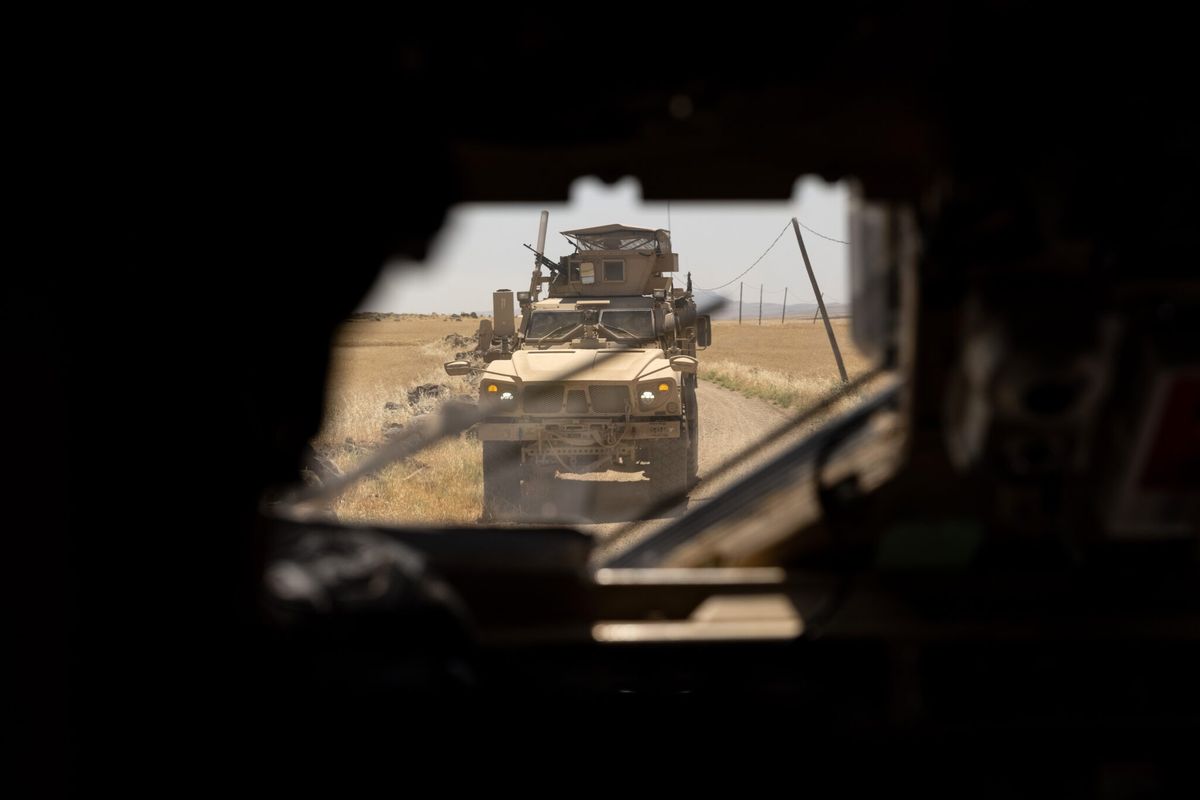After six years of war, I find it difficult to imagine what Syria will look like after it all ends. Villages resemble ghost towns, while lawlessness and violence allow warlords to thrive. Whether you’re in a rebel-held enclave or a government controlled area filled with thuggish paramilitary forces, the loudest voice is that of an AK-47 rifle.
Therefore, before any post-conflict recovery or reconstruction can begin, the biggest challenge will be to enforce the rule of law and regain order in areas which have been lawless for the past five years. Enforcing that order is no small feat. The behavioral pattern of chaos in both government and rebel areas will be difficult to break, but not impossible.
Still, what frightens me most is the scarcity of educated and intellectual youth left in the country. Most youths my age, or at least the ones I know, have left for Turkey or Europe in search of opportunity. They look for work or education, or even the simple goal of legal identification papers, since for many, a passport from the Syrian government is unattainable.
These young people have left by the thousands and for so many different reasons, from escaping mandatory military conscription, to political dissent. For instance, activists who were involved in the uprising, especially those promoting moderate values, have been relentlessly targeted and pushed out of the country in regime-held areas. At the same time, those in rebel-held areas have also left, not just because of the government’s use of indiscriminate weapons, but also because of radical fundamentalists like Jabhat Al Nusra and ISIS, who perceive civil society and media activism as a direct threat. The punishment for those participating in such activities or advocating for them, is public execution. Sadly, there has been no shortage of groups committing abuses against Syrians.
Neighboring countries, Turkey for example, are the only alternative for those activists who refused to immigrate to Europe in order to continue helping those who are still in Syria. But these activists are only able to participate in relief services and secretly help spread news from inside Syria. Turkey today has tens, maybe hundreds, of international nonprofit organizations located within its border cities where these activist can work. Some are doing well, but some still struggle, after six years, to understand the escalating violence only a few kilometers away.
In essence, young Syrian activists face two options after fleeing the country: either take the boat to Europe or work in Turkey, often for foreigners who don’t know anything about Syria. These foreign aid workers assume that their work experience in Iraq or Afghanistan is enough to determine how to handle the Syrian issue, but this ignores the differences between cultures and type of conflicts.
It is frustrating for Syrians, like me, to see the huge gap between what nonprofits are trying to achieve and what is going on inside the country. You can’t hold “give your enemy a hug” types of workshops and teach people how they should “listen to each other” while their family and friends are being starved and gassed to death
However, when the war is over, I do believe that those activists who were forced out will return to the country. It’s impossible for someone who sacrificed everything to see a Syria free from tyranny to refuse an opportunity to return if given the chance. Like many Syrians, I lost everything during the conflict. I love my country and I believe that cause was worth the sacrifice, but I reached a point where I couldn’t find a role in the ongoing brutal war, while being an Alawite woman put me in even greater danger. On another level, I was simply mentally exhausted.
Sadly, Syrians have no voice in this conflict anymore. It is a proxy war, and we are being used as pawns. The failure of the international community to properly react to the Syrian conflict, as well as a number of other factors, escalated the conflict and pushed us away. So I left. But we did not make a mistake by rebelling against a brutal dictator.
When that dictator is gone and Syrians are able to govern Syria, I will absolutely go back and apply what I have learned and do my best to make Syria the country that we were dreaming of when we marched the streets in 2011. You can’t start writing a new history, then leave the end to be written by someone else.
However, political will on its own is not enough to transform the country. That’s why education opportunities are what Syrian youth truly need. Activism on its own cannot create the impact we need to recover and rebuild what has been destroyed. As much as we will need Western experts to help stabilize the country, their mission cannot be as effective if it isn’t combined with the passion of those who were born and raised in Syria and suffered the most from the conflict.
Many have asked me how to help Syria and its refugees. My answer is to offer Syrian students scholarships or grants, which can change their lives dramatically, especially because they are starting over from scratch in new countries with no savings. Some organizations are offering support, but it is not enough, because there are many students and limited positions.
Schools and universities should get involved in this process by being more understanding and offering more opportunities. It is worth investing in those young refugees who are highly motivated by the fact that failure isn’t an option. One cannot fail when one has no other path to take.
After six years, it is clear that change will not come to Syria quick or easy. This is a long slog, and we may not truly see the fruits of our labor for a generation or more. However, I do believe in “soft changes,” and proper education can shape the passion and activism of young Syrian refugees, whether in America or Europe, into a powerful force for good in our country. These Syrian youths have been forced from their country, but they remain the foundation of a new Syria.














